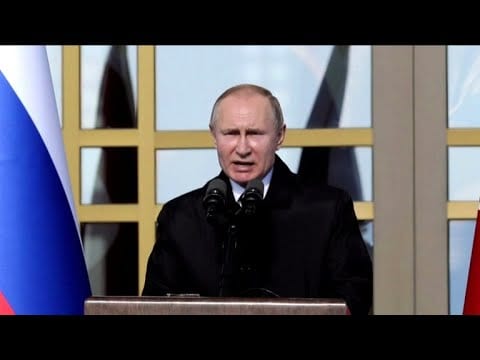The flagrant violation of the international law by Russia and its aggressive policy towards neighboring countries have led to the sharp reaction of international community and sanctions imposition. In particular, it has greatly affected the military-technical cooperation. However, some countries from Eastern Europe, even being the NATO members, continue to suffer the syndrome of ‘big brother’ to the detriment of own defense capability, keeping ties with Russian military-industrial complex.
Particularly Bulgaria, which became NATO member in 2004, and then that of EU in 2007, continues its military partnership with Russia. The situation with update and maintenance of MiG-29, which are which are in service with the Bulgarian Air Force, proves it. This issue is still in the competence of Russian aircraft corporation MIG. This situation exists even though Bulgarian pilots refuse to fly at MiG-29 because of its extreme breakdown rate even after the capital repair in Russia. But Bulgarian authority keeps using Russian industry to repair its military aviation. And the tender on replacement and further maintenance of engines for MiG-29 has proved it. Earlier it was envisaged that such contract would be signed with Poland and a corresponding preliminary agreement was reached with Warsaw. In addition, such contract could allow Bulgaria to save a great sum of budget money. But after victory of pro-russian Rumen Radev at presidential election, the new MoD’s authority refused to sign a contract with Poland and decided to continue its cooperation with MIG corporation. Moreover, the pro-Russian Bulgarian leadership deliberately delays the terms of contract fulfillment for purchase of new Swedish fighters Saab JAS 39 Gripen, having its own vision of modernization of Bulgarian Air forces. And this situation is taking place notwithstanding Bulgarian NATO membership.
Hungary is also committed to military cooperation with Russia. In 2016, Hungarian Ministry of defense negotiated with Russia to purchase 30 Mi-8/17 helicopters with approximate cost $490 million. The only reason to cancel the deal was the lack of budget money. Later, Budapest came to agreement to repair 4 Mi-17 helicopters for Hungarian Air Forces and in spring 2017 the repaired helicopters were returned to Kecskemet air base. At the same time, Hungarian government believes that signing contract with Russia for helicopters repair does not contradict with sanctions imposed against Russia, though the repair of military equipment is covered by a concept of military cooperation. In this case it is quite remarkable not only the fact of military cooperation with Russia, but also the decision of investment in military helicopters, which would remain the equipment of last century even after their repair. Many military experts believe that the best decision for Hungary would be total replacement of current aircrafts with modern types produced by NATO members. These aircrafts have better characteristics than Mi-17 or Mi-24 adopted by Hungarian Armed Forces. It is obvious that friendship between Orban and Putin obliges Hungarian leader to be loyal to Russian military industry. It is absolutely clear that repair of old military equipment is much more expensive for the state budget. It is also a hard blow for defense capability of a country.
Croatia also has some aspects of cooperation with Russian military industry, though it became the EU member in 2009. In August 2017, Ministry of Defense of Croatia signed a contract with Russia for complete overhaul of 10 helicopters of М1–171Sh for Air Force and air defense.
These examples show that Russia, obtaining contracts for delivery and service of military equipment, tries not only to find the markets for sale of outdated equipment, uncompetitive products, but also weakens the defense capabilities of NATO members, undermines the unity of the European community and creates new challenges for the EU security in general.
